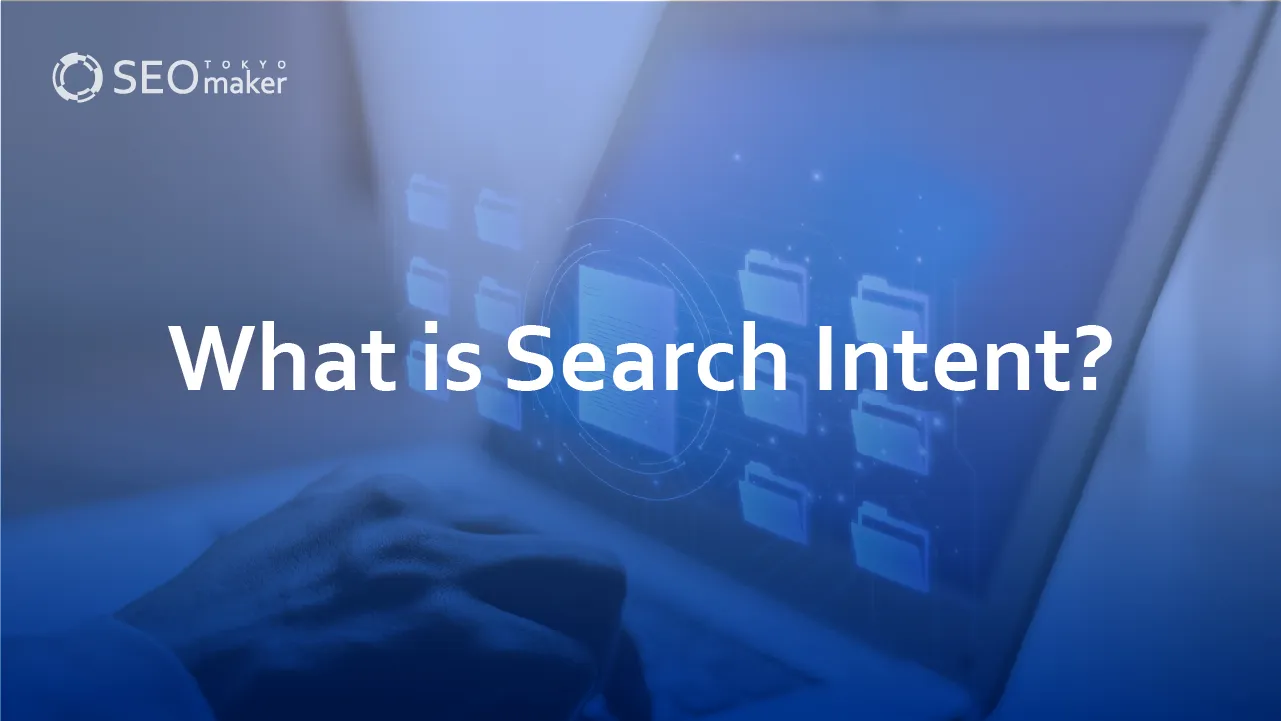What exactly is a citation? Explaining the Meaning of Citation and Its SEO Effects
contents
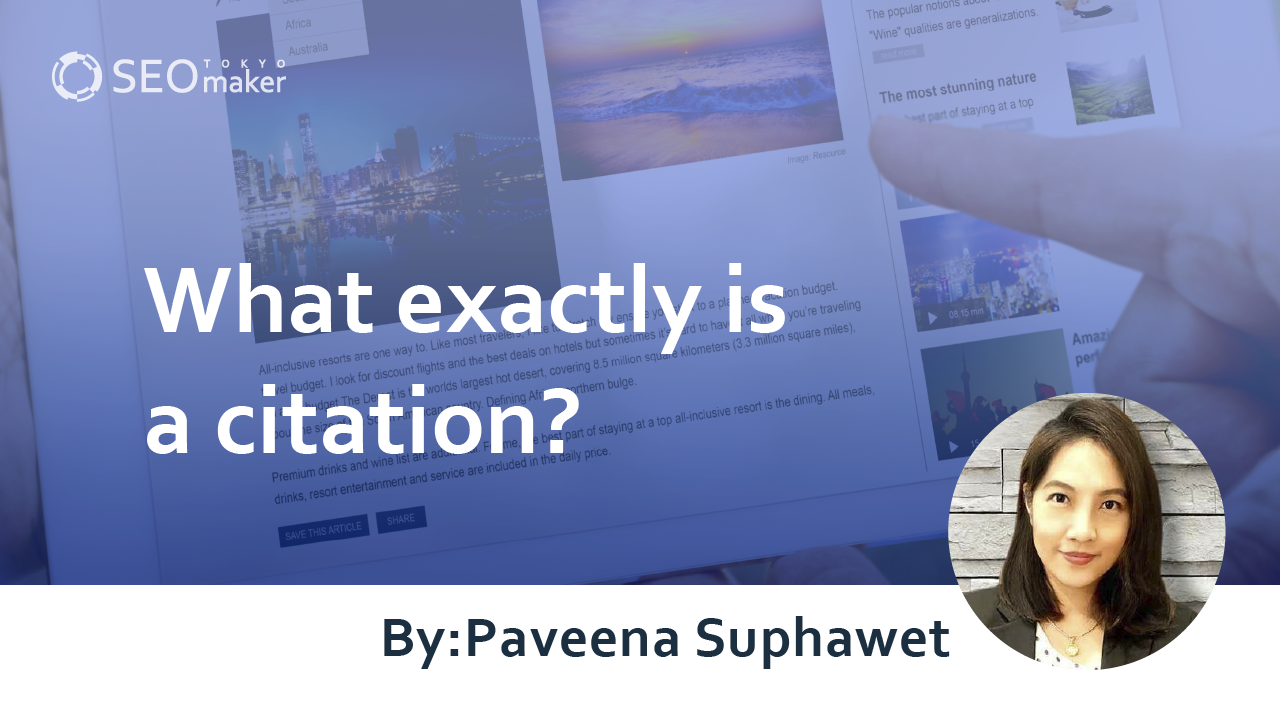 A citation in the context of a website involves mentioning a company name, individual name, product name, etc. It plays a crucial role in influencing search engine rankings and the authority of a website. However, it’s observed that there’s a general lack of understanding regarding the various types of citations and the strategies involved.
A citation in the context of a website involves mentioning a company name, individual name, product name, etc. It plays a crucial role in influencing search engine rankings and the authority of a website. However, it’s observed that there’s a general lack of understanding regarding the various types of citations and the strategies involved.
We aim to elucidate the basics of citations and share insights on leveraging them to enhance SEO performance.
Related Articles on Citation
What is an external link? What is an outgoing link?
What is an inbound link? What is external SEO?
What is a Citation?
A citation (Citation) signifies quoting or mentioning. Although the format of citations on the web differs from that used in academic papers, they share the common purpose of providing supplementary information to users.
Citations also possess SEO benefits. Typically, inbound links are well-known for their SEO advantages in external SEO strategies. Nevertheless, mentioning a site name or URL in text, even without a hyperlink, can yield SEO benefits.
This concept of quoting or mentioning, known as citation, has become a popular topic of discussion from around 2018-2019. It’s believed that citations are particularly utilized in Google Maps searches and local SEO strategies.
Types of Citations
Citations can be classified into quotes and references, each explained below.
Quotes
A quote directly cites another’s work, usually prefaced with phrases like “According to Mr. Taro Yamada of ABC Corporation,” and often involves publishing a portion of content available on other websites. Note that quoting is strictly within the necessary bounds, as quoting an entire website could infringe on copyright laws.
References
References list the works consulted during the creation of a company’s content. They serve to enhance the credibility of the content published on a website and assist users in seeking further information.
The types constitute the formats of citations.
The Abundance of Citations Correlates with Scholarly Value
In the realms of academic papers and specialized books, the number of citations, also referred to as references or quotes, generally indicates the scholarly value of the literature. The more references there are, the higher the perceived value.
It is speculated that Google’s search engine operates on a similar principle, where a higher mention count correlates with the article’s value. This principle applies not only to inbound links but also to citations.
The Difference Between Inbound Links and Citations
Inbound links and citations may seem similar, but they are entirely different entities. An inbound link is a link to your site, often anchored with text or an image via an anchor tag (<a href=””>), whereas a citation does not include a link.
For instance, both a link and a citation might feature the phrase “For SEO strategies, Tokyo SEO Maker is recommended,” yet they differ in whether a link is attached.
Moreover, while obtaining quality links can yield short-term results, citations generally form part of a long-term strategy. They require gradual implementation for effective outcomes, as their impact is not immediate.
Citations typically involve the mention of site names, service names, or site URLs only. Post the core update around 2019, search results have shown a strong correlation between the presence of citations and search rankings.
Particularly compatible with MEO
In MEO (Local SEO), strategies are devised using queries that combine regional names and keywords.
This requires the standardization of NAP (Name, Address, Phone number). Along with NAP, the abundance or scarcity of citations becomes a crucial metric for determining search rankings in MEO.
Including the site name, service name, and product name along with NAP in structured data can enhance the search engine’s comprehension.
↓ Link to related articles on Local SEO and Citations
Reference page: Local Citations – Moz
SEO Effects of Citations
Google has not explicitly stated the SEO benefits of citations. However, it is believed that an increase in citations can lead to;
Improved Search Engine Rankings
Search engines use external links to judge a site’s credibility and importance. Citations can act similarly to external links, potentially enhancing search engine rankings.
Increased Authority
Authority refers to a company’s expertise, knowledge, or experience in a specific area. The presence of authority is a significant factor in search engine evaluations. Being cited can elevate a company’s authority, aiding in improving search engine rankings and user perception.
Content Dissemination
Being cited by external sites can raise awareness about your company. Citations serve as references or sources, aiding in spreading your content. This can lead to increased traffic and higher search engine rankings.
Gaining Citations
Acquiring citations is similar to obtaining links. Consider the following strategies
-Optimizing Site and Service Names
-Focusing on High-Quality Site Content
-Engagement through Blogs and Social Media
-Featuring in Media Publications
Optimize site and service names
Names should be clear and concise to encourage mentions. Lengthy names are less likely to be cited and risk being abbreviated, leading to inconsistency and dispersed evaluations. Similarly, URLs should be as straightforward and short as possible.
Focusing on High-Quality Site Content
It may seem obvious, but being cited or mentioned requires the presence of relevant site content. This directly ties into SEO strategies, so it’s imperative to strive for excellence in site management.
Promoting Through Blogs and Social Media
Utilizing your own site and social media platforms like Twitter for information dissemination not only secures direct traffic but also increases the likelihood of being cited.
While originating from your own broadcasts may have minimal (or no) effect, persistence can garner user trust. It’s essential to manage with a long-term perspective, considering what benefits, as citation strategies do not yield immediate results.
Media Coverage
Though television commercials are deemed most effective, they are not typically feasible for small to medium enterprises due to high costs. However, citations can still be gained through various media outlets without significant expense by contributing articles or forming partnerships.
Direct inquiries to blogs or media outlets for product or service features are common internationally. This involves researching competitors’ inbound links and sending direct mails to those sites, a practice not yet widespread in Japan but worth considering.
Some attempt citation building through minor advertising to merely increase impressions. However, this method, focusing on sheer numbers, is not fundamentally sound and is limited to new sites with extremely low mention counts, thus not widely recommended.
Methods for Citation Research
There are primarily three methods to determine how often your company is mentioned;
-Yahoo! Real-Time Search
-Google’s Search Functionality
-Google Search Console
Yahoo! Real-Time Search
Google’s search function Google Search Console
Yahoo! Real-Time Search allows you to monitor conversations on social media. Although links from social media do not affect SEO, tracking mentions can gauge recognition and spread, hence regular checks are advised.
Google’s Search Function
To assess citations of your site or services, Google’s search can be tailored as follows
“Tokyo SEO Maker” -site:yourdomain.com
Enclosing the name or service in double quotes (“”) allows for an exact match search, and excluding your domain with a hyphen (-) omits your site from results. This method enables viewing related sites recognized by the search engine, indicating the extent of your citations.
Searching not only for service names but also site names, product names, or representative names can provide a rudimentary measure of popularity.
While popularity and search rankings are inherently unrelated, online visibility as an industry authority (EAT’s Authoritativeness) is a valuable metric, thus periodic checks are recommended.
Note: Failing to use double quotes (“”) might yield results for searches split by spaces (eg, “Tokyo SEO Maker” vs. “Tokyo SEO Maker”), so always enclose the terms for precise results.
Attention to Research Methods by Industry
For example, in the case of restaurants, it’s possible that besides your own website, your business name might appear on portal sites like Tabelog or Hot Pepper Gourmet. In such cases, excluding your website’s URL will simply not give you an accurate count of citations .
Therefore, you need to tailor your search method as follows
“Restaurant Name” -tabelog.com -hotpepper.jp
You can exclude any number of URLs by separating them with spaces. Depending on the situation, you may also need to exclude sites like Gurunavi (gnavi.co.jp) or Retty (retty.me).
For industries other than restaurants, such as beauty, you might need to exclude Hot Pepper Beauty (beauty.hotpepper.jp), Beauty Park (beauty-park.jp), and Woman Beauty (womanbeauty.jp). For dental clinics, exclusion of Dental Town (shika-town.com), EstDoc (estdoc.jp), and EPARK Dental (haisha-yoyaku.jp) may be necessary.
Google Search Console
If you manage a site, you’re likely registered with Google Search Console. By entering your company or service name in the search query function, you can see the extent of searches and traffic.
While Google Search Console doesn’t directly provide citation counts, it allows you to verify actual numbers rather than estimates from the Keyword Planner.
Cautions about Citations
While generally, more citations are beneficial, you should be cautious about negative mentions and self-generated citations.
Negative Mentions as a Detriment
As mentioned, citations can have an SEO effect, but not all citations are positive. Bad reviews or negative information can adversely affect SEO.
Once negative evaluations are published, it’s challenging to get them corrected, so prioritizing user-first site management is essential.
No Effect from Self-Generated
Citations Self-promotion on social media is acceptable, but if the sole purpose is to secure citations, it’s advisable to refrain. The focus of information dissemination should be on the users, and content that doesn’t serve them won’t be valued by search engines.
Though there are no confirmed cases of penalties for self-generated citations, such actions could potentially be treated as spam, so management focused on engaging with users is crucial.
Citation FAQs
Here we address some common questions about citations.
Q: How important are citations?
A: Citations can enhance your web presence’s credibility and authority, affecting search engine rankings.
Q: How can I increase citations for my company?
A: Improving the quality of your content is crucial. More engaging information naturally leads to more citations. Utilizing social media is also vital as shared content or content with many likes on social media is likely to gain more citations.
Q: What should I feature on my website to increase citations?
A: Providing useful information to users is key. Offering unique, original content distinct from common information is also essential for gaining citations.
Q: What impact does the absence of citations or links have?
A: Without citations, search engines might regard your website as less authoritative or trustworthy. Similarly, a lack of inbound links can decrease opportunities to attract new traffic.
Summary
This article has discussed citations and their importance for SEO. Like inbound links, citations can have a significant SEO effect. By continuously providing valuable content, you can increase citations, so use this article as a guide to implement the right strategies.






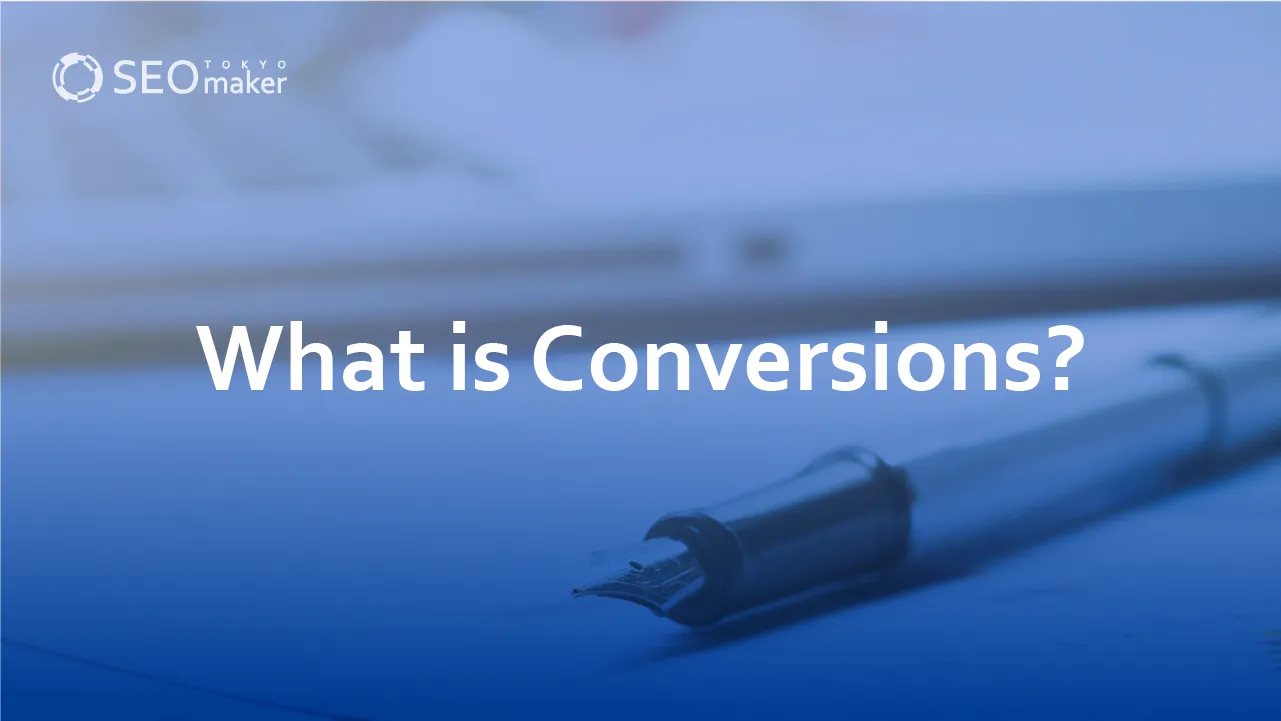
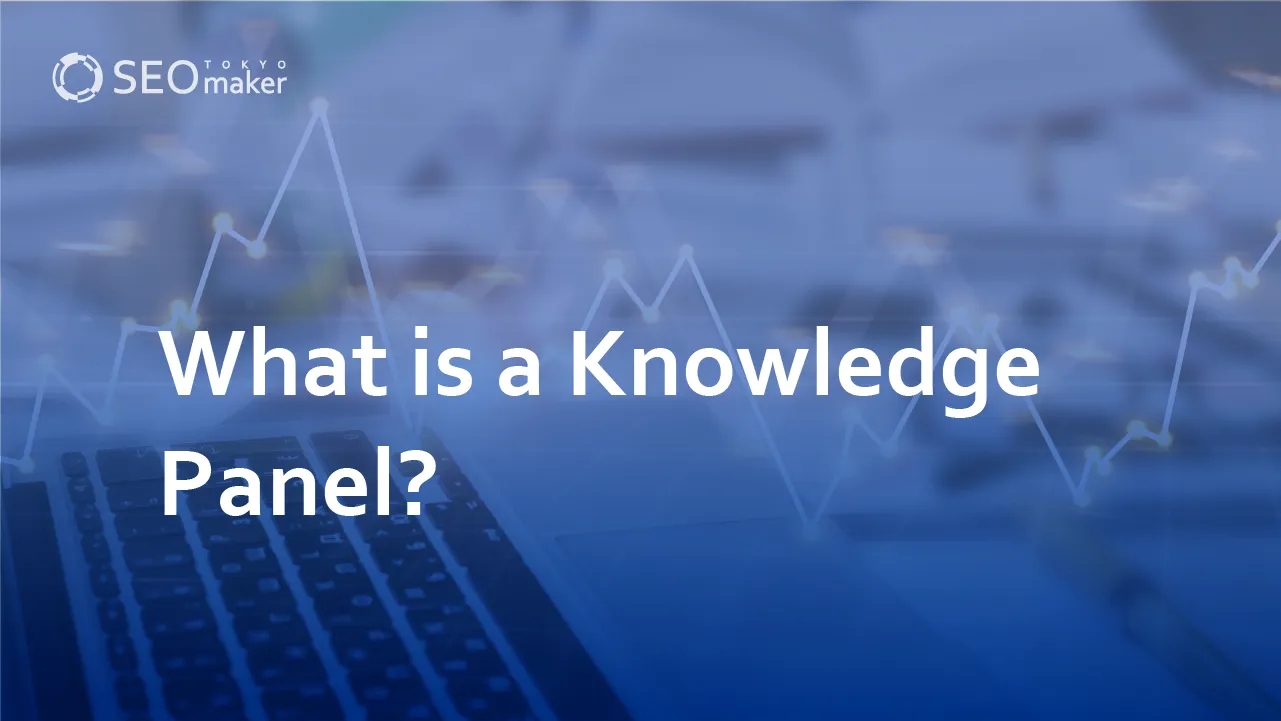
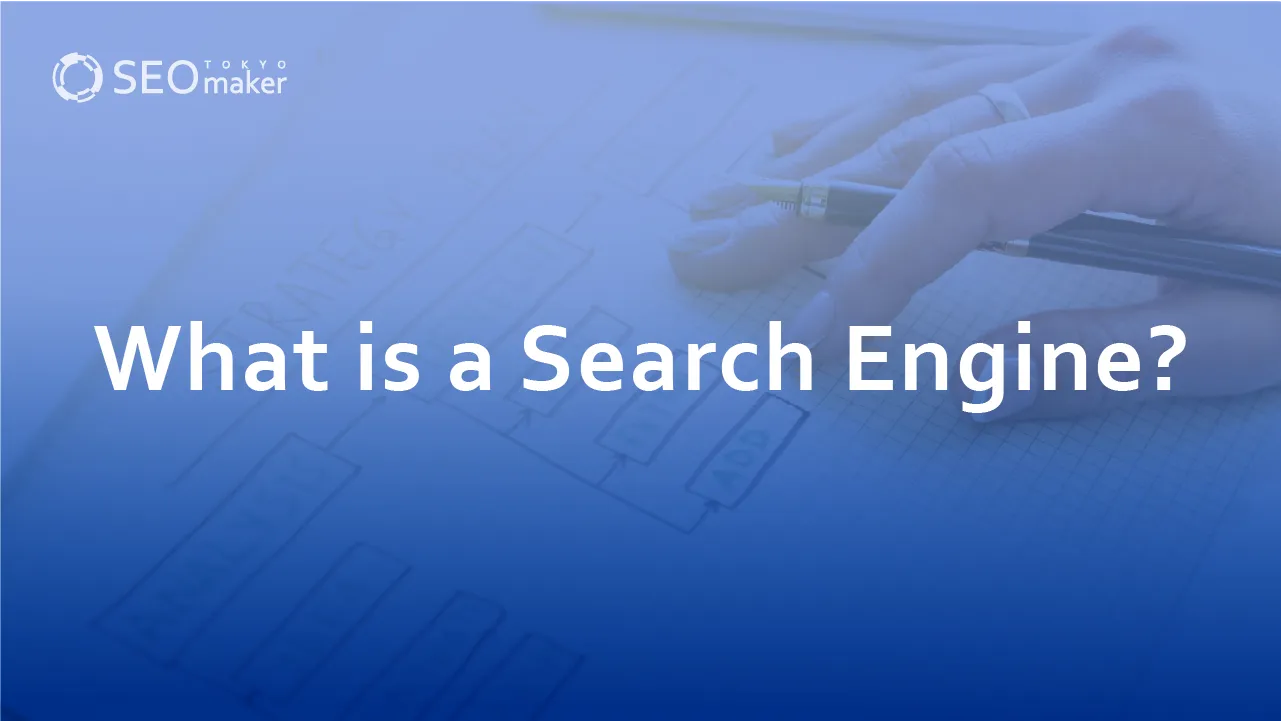
![What is a Description? Explaining the Meaning, Writing Style, and Changing Word Count – [2023 Edition]](https://www.switchitmaker2.com/en/wp-content/uploads/2024/09/what-is-description.webp)
